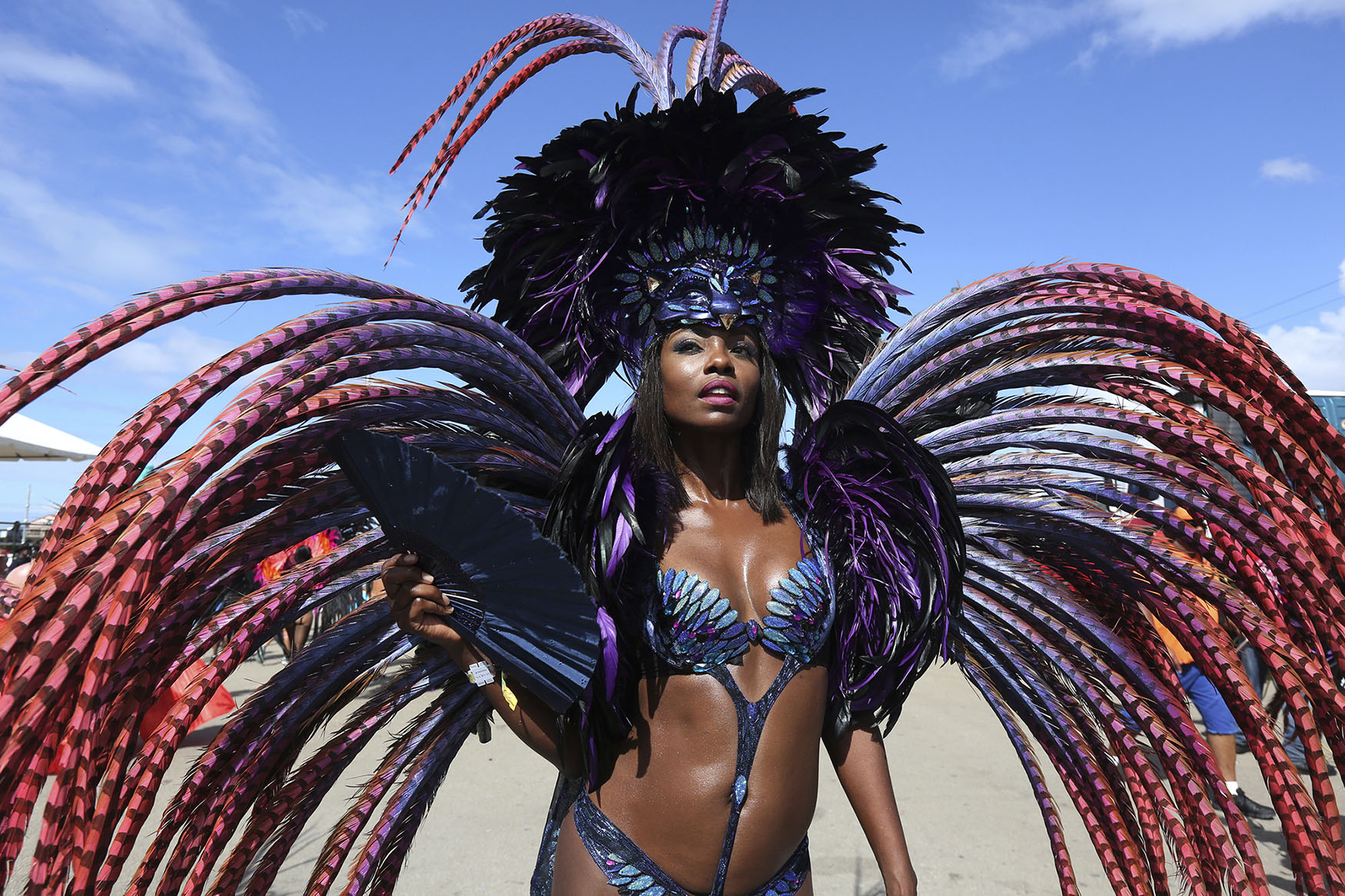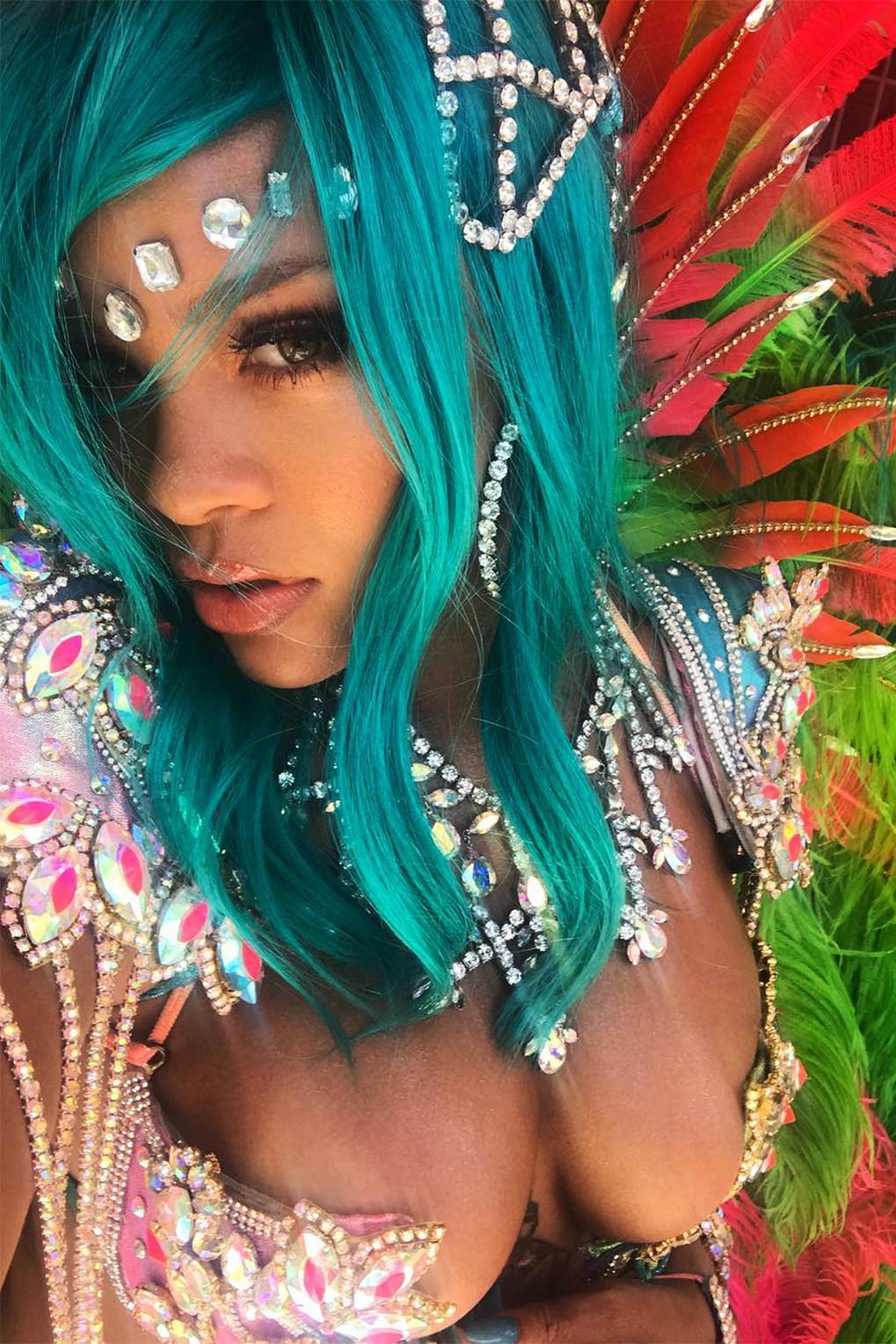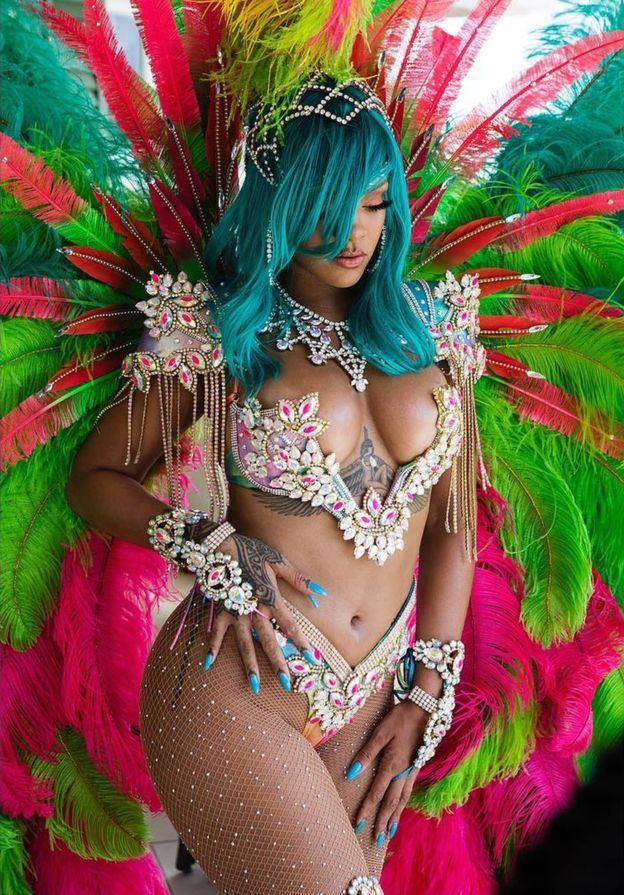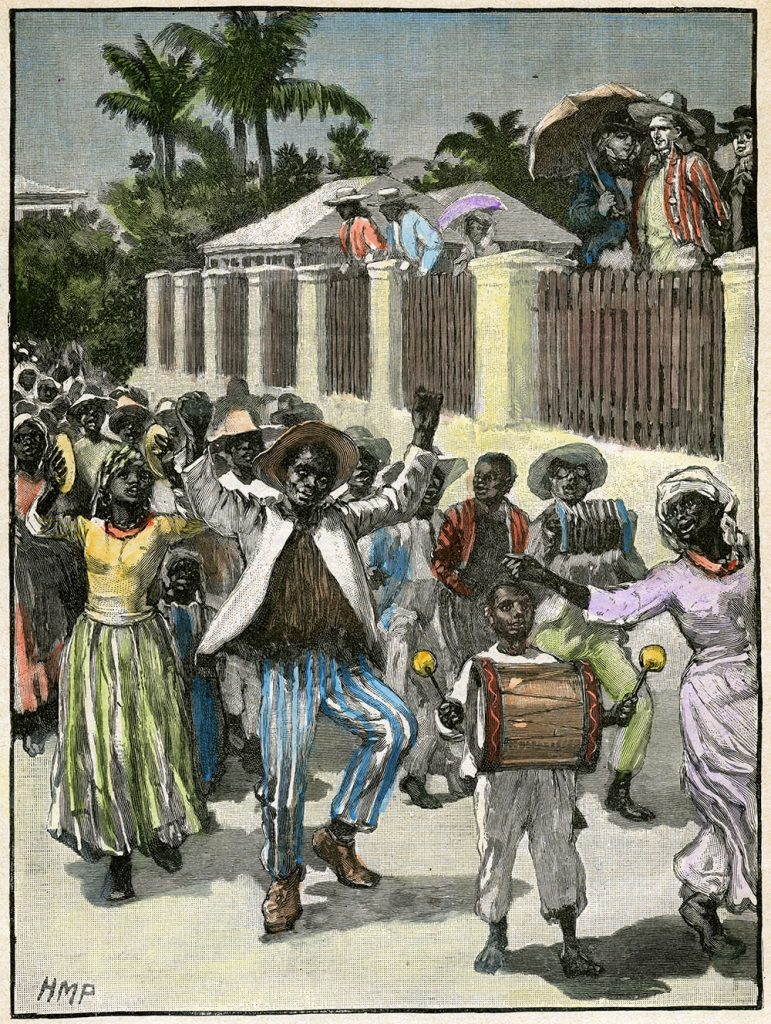No products in the cart.

PORT OF SPAIN, TRINIDAD - FEBRUARY 28: Miss Universe 1998 Wendy Fitzwilliam masquerades with Harts mas band presenting 'Ultra Violet Jungle' during Trinidad Carnival 2017 at the Queen's Park Savannahon February 28, 2017 in Port of Spain, Trinidad. (Photo by Sean Drakes/LatinContent/Getty Images)
Does Joe Budden Think Carnival Is A Ho Convention?
“These chicks can’t wait to put on these carnival outfits and be hoes.”
And we’re off. Those are the ridiculous words of New York rapper Joe Budden, who, during a recent taping of his podcast, appears to equate female participation in carnival celebrations with sexual promiscuity. Budden and his co-hosts were discussing celebrity crushes (see 2:03:28) when the subject turned to one of those crushes, r&b singer Mya, attending Trinidad and Tobago’s recent carnival celebration.
If you’re on this website, you’ve likely heard of carnival or at minimum seen photographs of some famous faces getting festive at the event. Rihanna caused an international drought a couple of years ago with these thirst inducing images from her native Barbados.
Brazil, England, Costa Rica, Canada, Cuba, Haiti and even the United States (“Where Brooklyn at!?”) also hold annual carnival celebrations. Photographs from the events typically feature voluptuous women of color in vibrant, revealing costumes. And these women are, how do the kids say, turnt up. Make zero mistakes about that. Twerking. Dancing. Singing. Parading. And more IMPORTANTLY, celebrating. But what? What are they celebrating? And is their method of turn-up tantamount to ho-dom?
To understand what carnival is really about, we have to hop our a**es in this dusty little time machine I built and visit its backstory. Because I’m a writer of few words, and on a deadline, I will not inundate you with dates or names of historical figures you’ll forget before this sentence ends. Instead, we’ll pick up, at least in the case of Trinidad, in 1833. That’s when the Emancipation Bill was passed on the island, granting slaves freedom from the Frenchies.
In the 50 years leading up to that legislation, French enslavers and other free folk (Spanish, British, Mulattos) on the island would hosts their own little ol’ carnival, “which was noted to be a season of gay and elegant festivities extending from Christmas to Ash Wednesday.” These ‘festivities,’ so says the National Carnival Commission of Trinidad and Tobago, consisted of dinners, balls, concerts and hunting parties.
To celebrate their emancipation – pardon me folks, FREEDOM! – and inclusion into society, former slaves began producing their own carnival in the 1830s: the costumes, music and dances on display paying tribute to their African roots. Historian believe the celebration then spread from Trinidad to neighboring islands/territories and eventually, North America.
So if carnival is a celebration of freedom, and more-or-less a f*ck you to imperialism, it is not what Joe Budden seems to imply, which is a ho convention. Women can turn up, and dress however they want, because they are free to do so whether that’s at a lit carnival celebration in Trinidad, Essence Music Fest in New Orleans or afternoon run to the Crenshaw Mall.
That’s not to say there aren’t women (and men) that attend carnival just to play dress up without knowing the celebration’s backstory. Which is maybe where Joe was going with this? I’m not sure. But people do that every year, in just about every country for some reason or another. Ask a friend about the origins of Halloween and for an explanation of why grown men and women dress like asshats on October 31st? We’re sure that answer, once they google it, will be far less culturally significant to people of color than celebrating our emancipation. Still, even the more ignorant participants at carnivals deserve more than being labeled a “ho” for wanting to have fun.
I’m a fan of you and I love your podcast but I felt hella disrespected when you commented on my culture saying that “These chicks can’t wait to put on them Carnival outfits & be hoes.”
Please learn the meaning & history behind carnival before commenting on it. @JoeBudden
— 🇹🇹 (@FaithsAfro) March 10, 2019
We hear you, @FaithsAfro. But while Brother Buddens viewpoint on this subject is archaic, offensive and sexist, the faux pas actually sparked conversation about the origins of carnival and its history in the Black community. And only by having open conversations and educating ourselves about our story can we continue to push the culture forward collectively.
Eric has revolved in and out of passport controls for over 20 years. From his first archaeological field school in Belize to rural villages in Ethiopia and Buddhist temples in Laos, Eric has come smile to smile with all walks of life. A writer, photographer and entrepreneur, the LA native believes the power of connectivity and community is enriched through travel.


